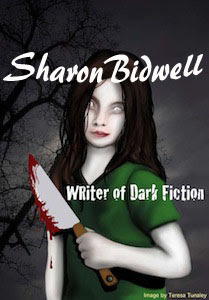A few weeks ago Alternative Read invited me to share my desk. This is that post.
So…say a few words about your routine, they said. If only I had one! I’ve tried various regimens.
Write until I’m exhausted, never a great plan. Stick to a minimum number of words able to walk away self-satisfied and smug because I’ve got at least that amount of work accomplished. Or write as the muse dictates. Truth is, there is no correct choice. It’s a question of finding what works, and like all designs, sometimes life gets in the way and a change is necessary.
I used to like to write first thing in the morning. I came to struggle with that because I always worried I neglected something, maybe an important email. I try to quickly check email and do a pass through some type of social media early now, so at least it’s not nagging at me. So distracting!
If I have the opportunity I try to write a couple of hours in the morning and a couple early afternoon. If not, then I’ll write when and where necessary. I can work if there’s a television on in the room as long as it’s not a show I’m interested in, but I don’t tend to cope well with music playing. I’ve written during a journey or while visiting relatives. I’ve written for ten minutes or ten hours. Routine…it’s a wonderful dream.
My desk does not look interesting, though I can lower it or raise it as I want so I can choose to sit or stand, a better option then being glued to the seat facing a deadline. It’s not always as bare as it looks in the picture mostly because ‘hubby’ puts papers on there for filing or attention. If I’m peeved, I may throw these underneath on the floor. Don’t worry, I’m joking…partly. I really do chuck some papers into a pile by my feet. Course, I’m always hoping the little guys to the right will help with the filing if not the writing. Hasn’t worked yet.
The pictures above are for enjoyment only. Although always a fan, I didn’t realise how much I’d come to adore Terry Pratchett’s work until I heard of his illness and, subsequently, his death. All but one of these pictures are official (and the odd one for my pleasure only, added because I loved it so much). This is a new house, a fresh start, and I drove my other half crazy getting him to hang these as I wanted.So…say a few words about your routine, they said. If only I had one! I’ve tried various regimens.
Write until I’m exhausted, never a great plan. Stick to a minimum number of words able to walk away self-satisfied and smug because I’ve got at least that amount of work accomplished. Or write as the muse dictates. Truth is, there is no correct choice. It’s a question of finding what works, and like all designs, sometimes life gets in the way and a change is necessary.
I used to like to write first thing in the morning. I came to struggle with that because I always worried I neglected something, maybe an important email. I try to quickly check email and do a pass through some type of social media early now, so at least it’s not nagging at me. So distracting!
If I have the opportunity I try to write a couple of hours in the morning and a couple early afternoon. If not, then I’ll write when and where necessary. I can work if there’s a television on in the room as long as it’s not a show I’m interested in, but I don’t tend to cope well with music playing. I’ve written during a journey or while visiting relatives. I’ve written for ten minutes or ten hours. Routine…it’s a wonderful dream.
My desk does not look interesting, though I can lower it or raise it as I want so I can choose to sit or stand, a better option then being glued to the seat facing a deadline. It’s not always as bare as it looks in the picture mostly because ‘hubby’ puts papers on there for filing or attention. If I’m peeved, I may throw these underneath on the floor. Don’t worry, I’m joking…partly. I really do chuck some papers into a pile by my feet. Course, I’m always hoping the little guys to the right will help with the filing if not the writing. Hasn’t worked yet.
Death, Rincewind, Errol, Greebo, The Librarian and The Death of Rats all look down from around the Discworld while I work. These and the overcrowded bookshelves at my back are part of a world I love so much. They’re the part of me who loved The Beast because he gave Belle a library.
I write in many genres and I’m pleased to say the latest upcoming titles in the multi-authored Lethbridge-Stewart series (The Brigadier of Doctor Who fame) will include my book, A Very Private Haunting. http://www.candy-jar.co.uk/books/lethbridgestewarthome.html
My first foray into this universe is available now on Kindle in the short story, The Wishing Bazaar.






